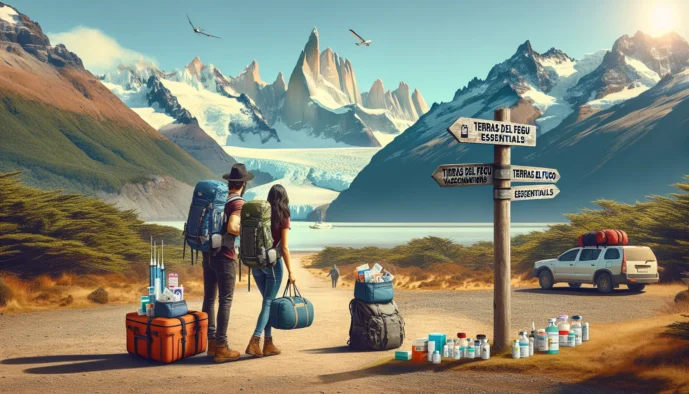Health Requirements to visit Patagonia
Prepare for your Patagonia and Tierras Del Fuego adventure with essential health tips, vaccinations, and safety precautions for a seamless journey.

Patagonia and Tierra del Fuego, spanning southern Chile and Argentina, are remote and rugged regions that require careful health preparation. While the area is generally safe, its isolation, extreme weather, and limited medical facilities mean you need to plan ahead to stay healthy during your trip. Here’s what you need to know about health matters in South Patagonia.
Essentials
Vaccinations and Health Precautions
- Routine Vaccines: Ensure your routine vaccinations (e.g., measles, mumps, rubella, diphtheria, tetanus, and influenza) are up to date.
- Hepatitis A and B: Recommended for all travelers, as these diseases can be contracted through contaminated food, water, or medical procedures.
- Typhoid: Consider this vaccine if you plan to eat street food or travel to rural areas with limited sanitation.
Altitude and Weather-Related Health Risks
- Altitude: Areas such as Torres del Paine and Los Glaciares are located at relatively low altitudes, so the risk of altitude sickness is minimal.
- Extreme Weather: Patagonia’s weather is unpredictable, with strong winds, rapid temperature changes, and harsh conditions. Dress in layers, wear windproof and waterproof clothing. Although the UV index is relatively low at these latitudes, it’s still important to protect yourself from UV radiation, as you may be exposed for extended periods during hikes or explorations.
Food and Water Safety
- Water: Tap water is generally safe to drink in towns like El Calafate, Ushuaia, Punta Arenas, and Puerto Natales. During hikes, it is generally safe to drink river water since there is little nearby contamination. However, in more remote areas, it’s best to drink filtered water or use water purification tablets.
- Food: Food hygiene standards are good in restaurants and hotels.
Medical Facilities
- Major Towns: Towns like El Calafate, Ushuaia (Argentina), Punta Arenas, and Puerto Natales (Chile) have hospitals, clinics, and pharmacies. However, facilities may be basic compared to those in larger cities.
- Remote Areas: Medical facilities are scarce in remote areas like Torres del Paine, El Chaltén, Tierra del Fuego National Park, or along hiking trails. In case of emergencies, evacuation to a major town may be necessary.
- Travel Insurance: Ensure you have comprehensive travel insurance that covers medical emergencies, evacuation, and repatriation. Check if your policy includes activities like hiking, trekking, or adventure sports.
Common Health Issues
- Gastrointestinal Problems: Traveler’s diarrhea can occur due to changes in diet or water. Carry over-the-counter medications like loperamide and rehydration salts.
- Respiratory Infections: Cold, windy weather can lead to respiratory issues. Pack cold and flu medications, throat lozenges, and a reusable water bottle to stay hydrated.
- Insect Bites: In Patagonia, especially during autumn and winter, the likelihood of being bitten by insects is very low.
First Aid Kit
Pack a well-stocked first aid kit, including:
- Bandages, antiseptic wipes, and adhesive tape.
- Pain relievers (e.g., ibuprofen or acetaminophen).
- Antihistamines for allergies or insect bites.
- Medications for diarrhea, nausea, and motion sickness.
- Blister treatment (e.g., moleskin or blister pads) for hiking.
- Any prescription medications (bring extra supplies and a copy of your prescription).

Practical Tips
- Stay Informed: Check weather forecasts and trail conditions before heading out. Let someone know your itinerary if you’re hiking or exploring remote areas.
- Hydration and Nutrition: Carry enough water and high-energy snacks, especially for long hikes or drives.